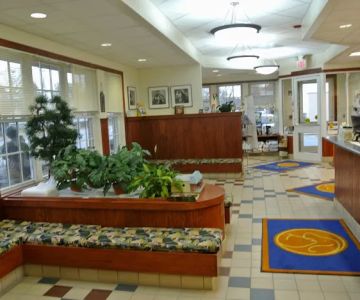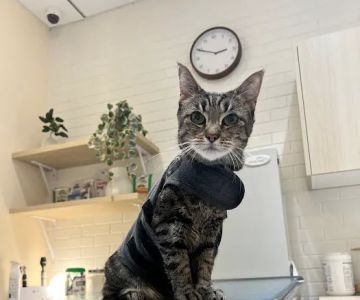- 1-Understanding-the-Impact-of-Pet-Urine-on-Hardwood-Floors
- 2-Immediate-Steps-to-Take-When-Pet-Urine-Contacts-Hardwood
- 3-Effective-Cleaning-Methods-for-Pet-Urine-on-Hardwood-Floors
- 4-Preventing-Future-Pet-Urine-Stains-and-Odors
1. Understanding the Impact of Pet Urine on Hardwood Floors
Pet urine can cause significant damage to hardwood floors if not cleaned promptly and properly. The acidic nature of urine can lead to discoloration, warping, and even permanent staining. Understanding the chemistry behind pet urine helps in selecting the right cleaning approach that protects your hardwood’s finish and structure.
Moreover, lingering odors from pet urine can create an unpleasant environment and encourage repeat accidents in the same spot.

1330 Old Chain Bridge Rd, McLean, VA 22101, USA
See Details1.1 Why Hardwood Floors Are Vulnerable
Hardwood floors are porous to some extent, allowing urine to seep into cracks and the wood grain. This absorption complicates cleaning, making it crucial to act quickly before the urine penetrates deeply.
2. Immediate Steps to Take When Pet Urine Contacts Hardwood
When you discover pet urine on hardwood floors, the first few minutes are critical. Immediate action can prevent long-term damage and make cleaning easier.
2.1 Blot the Area Thoroughly
Use clean paper towels or an absorbent cloth to blot the urine gently. Avoid rubbing, as this can spread the stain and push urine deeper into the wood.
2.2 Use a Neutral Cleaner
Apply a pet-safe, pH-neutral cleaner designed for hardwood floors to the affected area. This helps neutralize the urine’s acidity without damaging the wood finish.
3. Effective Cleaning Methods for Pet Urine on Hardwood Floors
Several proven methods can restore your hardwood floors after a pet urine accident:
3.1 Enzymatic Cleaners
Enzymatic cleaners break down the organic compounds in urine, eliminating odors and stains at their source. They are highly effective for pet urine and safe for hardwood surfaces.
3.2 Homemade Solutions
A mixture of white vinegar and water can neutralize odors and disinfect the area. Follow this with a mild dish soap rinse to remove residue, and dry the floor thoroughly.
3.3 Deep Cleaning and Refinishing
If urine has penetrated deeply or caused permanent damage, professional deep cleaning or refinishing may be necessary. This process sands away the damaged wood layer and applies a new finish to restore appearance and protect the floor.
4. Preventing Future Pet Urine Stains and Odors
Prevention is key to maintaining hardwood floors in a pet-friendly home.
4.1 Train Your Pets
Consistent training and positive reinforcement reduce accidents. Using designated potty areas and cleaning accidents promptly help reinforce good habits.
4.2 Use Protective Coatings
Applying water-resistant sealants on hardwood floors can create a barrier against urine absorption, making cleanup easier and preventing stains.
4.3 Regular Cleaning Routine
Routine cleaning with pet-safe products keeps floors fresh and minimizes buildup that could trap odors.
5. How Hidden Brook Veterinary Can Assist
Hidden Brook Veterinary understands the challenges pet owners face in maintaining clean, odor-free homes. They offer expert advice on pet care and hygiene products that complement effective floor cleaning routines.
Whether you need recommendations on safe cleaning products or guidance on pet behavior to prevent accidents, Hidden Brook Veterinary provides trusted support and resources tailored to your needs.
Explore their services and product selections to protect your hardwood floors and enjoy a harmonious living space with your pets.










